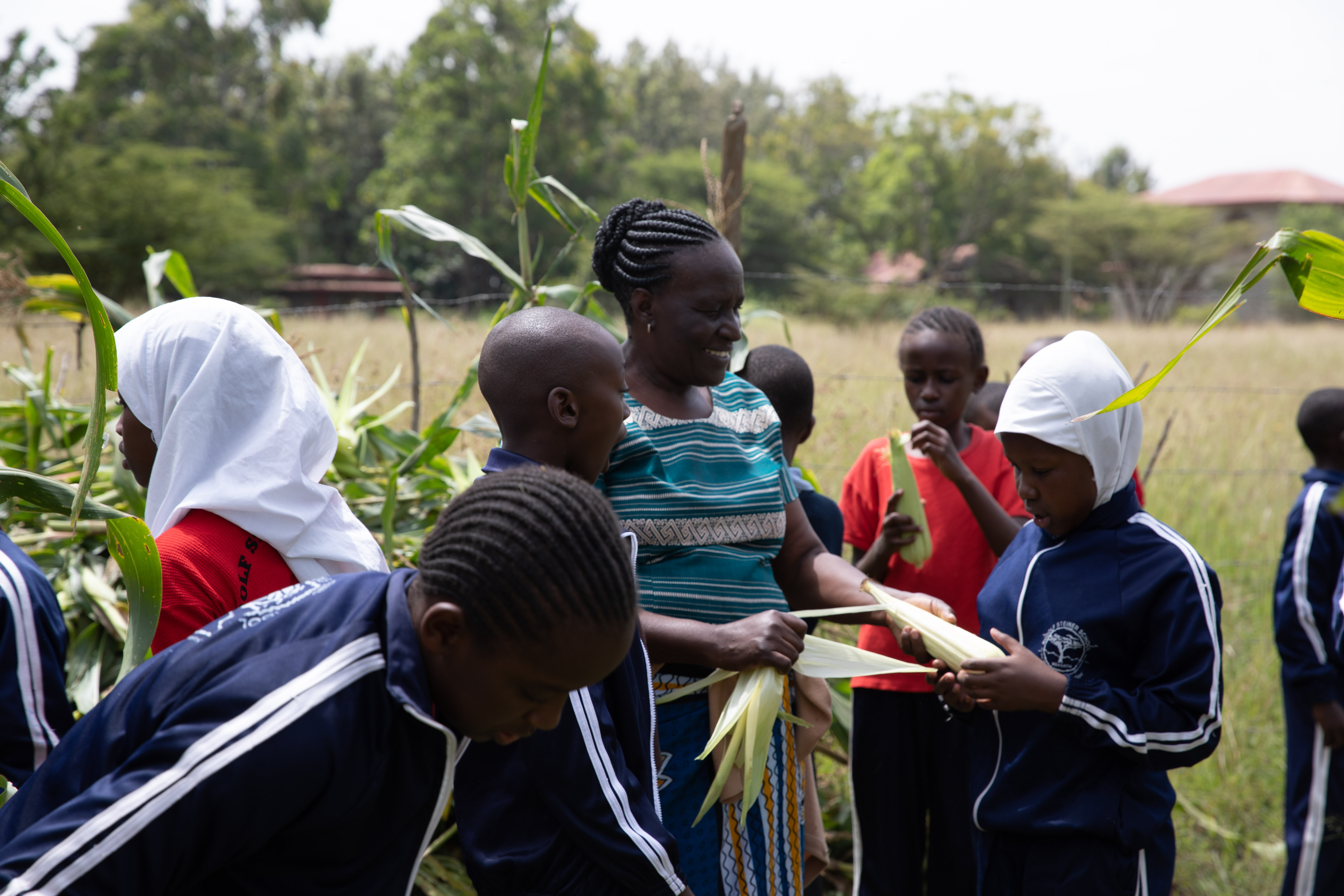Waldorf News
Rudolf Steiner School Mbagathi in Nairobi

From the Section for Agriculture, Goetheanum
As soon as you arrive at the Rudolf Steiner School in Mbagathi all the traffic noise from the suburbs of Nairobi is left behind. You enter a safe space, surrounded by trees and hedges planted many years ago. You hear birds singing and make your way along a giant football field, where the dairy cows graze between the children playing football.
This scene was not always like this. When the school started in 1989, it faced a great many economic, social and environmental challenges. The farm is still the heart and center of the school. Its hard, black cotton soils have been cultivated organically from the start.
In 2016 they converted to biodynamic practices. Composting, making and applying preparations, integrating trees and shrubs, and closing nutrient cycles are central elements of the production. In this way the soil is managed so that it produces most of the food for the children.
11 acres (4,5 ha) of the total of 20 acres (8 ha) of the school grounds are used for the production of maize, milk from the cows and vegetables such as beans, potatoes, spinach and carrots.
Besides self-sufficiency and the production of food for the 340 children, education is also an essential aspect of the farm. All the children have lessons in gardening and agriculture at the farm, from kindergarten up to the ninth grade. They learn about the value of food and how to grow it without using pesticides or agrochemicals. When they leave school, most of them continue to grow their own vegetables at home as Rose Ingala, the gardening teacher, explains.
The farm is not only a centre of learning for the children, but also for teachers and other farmers. When the children have school holidays, the farm is used for training in biodynamic agriculture and Waldorf education for teachers and farmers from all over Africa. This enables the cycle of production, consumption and recycling the leftovers on site to be maintained.
80% of the children come from homes with economically disadvantaged families, where poverty affects many aspects of their lives. Here, the children learn, experience and feel the importance of food production and consumption.
At the same time, this place helps them to heal from their troubled family stories. It makes them strong and healthy to face their bright futures. In the school, not only vegetable production, trees, shrubs and cows are used in an integrative way, but the school produces what is needed to heal the children. “Natural medicine”, as Mercy Njoki calls the food for the children.
If you are interested in the school, their sponsorship programme and the school farm, please visit www.steinerschoolmbagathi.co.ke/
From the Goetheanum Section for Agriculture
As part of the project “Living Farms: Potential of Biodynamic Places to Grow beyond Global Change”, visits will be made to study 15-20 biodynamic farms throughout the world. The thoughts, strategies and options for action of the very varied biodynamic farms in times of global change will be made visible and accessible through short videos, publications and events. This will enable those in practical agriculture and advisory services as well as consumers to access the repertoire of possibilities of biodynamic farming sites. This access will enable a united growth towards the challenges of global change.

Rose and the children in the school garden (Photo: Lin Bautze)
 Train to Teach in Seattle
Train to Teach in Seattle Immersive Academics and Arts
Immersive Academics and Arts Space speaks. Its language is movement.
Space speaks. Its language is movement. Transforming Voices Worldwide
Transforming Voices Worldwide ~ Ensoul Your World With Color ~
~ Ensoul Your World With Color ~ Flexible preparation for your new grade
Flexible preparation for your new grade Middle School Science With Roberto Trostli
Middle School Science With Roberto Trostli The Journey is Everything
The Journey is Everything Great books for Waldorf Teachers & Families
Great books for Waldorf Teachers & Families Bay Area Teacher Training
Bay Area Teacher Training Caring for All Stages of Life
Caring for All Stages of Life Full-Time Teacher Education
Full-Time Teacher Education Resiliency and the Art of Education
Resiliency and the Art of Education Jamie York Books, Resources, Workshops
Jamie York Books, Resources, Workshops Waldorf Training in Australia
Waldorf Training in Australia Waldorf-inspired Homeschool Curriculum
Waldorf-inspired Homeschool Curriculum Association for a Healing Education
Association for a Healing Education Summer Programs - Culminating Class Trips
Summer Programs - Culminating Class Trips Bringing Love to Learning for a Lifetime
Bringing Love to Learning for a Lifetime Apply Today: New Cohort Starts Nov. 2025
Apply Today: New Cohort Starts Nov. 2025
 Quality Education in the Heartland
Quality Education in the Heartland Roadmap to Literacy Books & Courses
Roadmap to Literacy Books & Courses Everything a Teacher Needs
Everything a Teacher Needs
 RSS Feeds
RSS Feeds